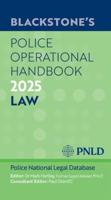Publisher's Synopsis
U.S. policy toward the Central Asian states has aimed at facilitating their co-operation with U.S. and NATO stabilisation efforts in Afghanistan and their efforts to combat terrorism, proliferation, and trafficking in arms, drugs, and persons. Other U.S. objectives have included promoting free markets, democratisation, human rights, energy development, and the forging of East-West and Central Asian-South Asian trade links. Such policies aim to help the states become what various U.S. administrations have considered to be responsible members of the international community rather to degenerate into xenophobic, extremist, and anti-Western regimes that contribute to wider regional conflict and instability. This book examines the recent developments in Kazakhstan, Kyrgyzstan, Tajikistan, Turkmenistan, and Uzbekistan with a focus on the emerging importance of the U.S.-Central Asia partnership.











